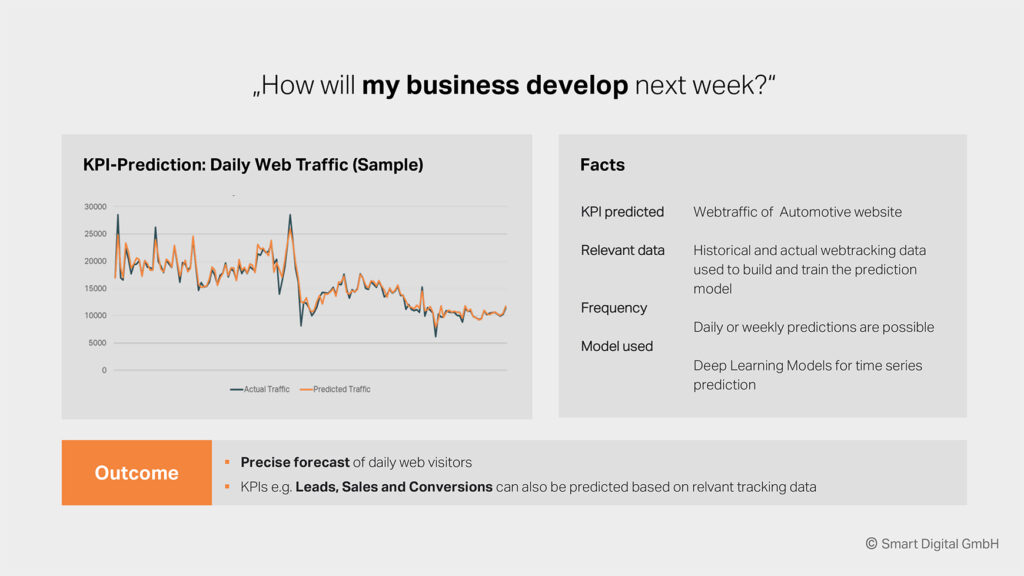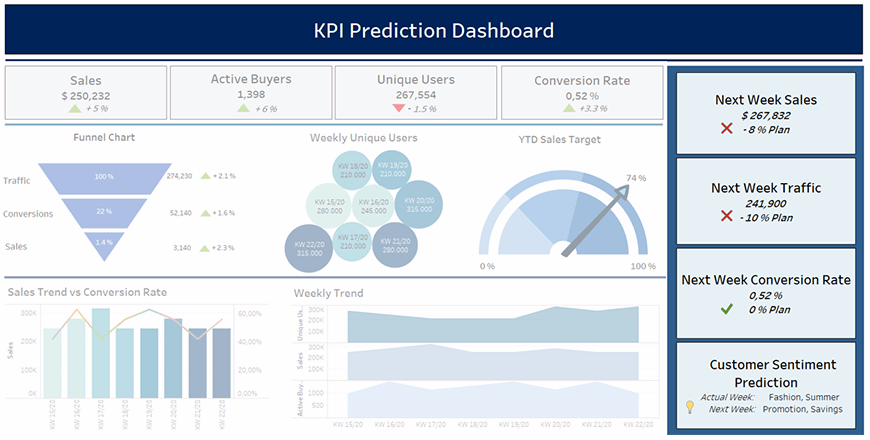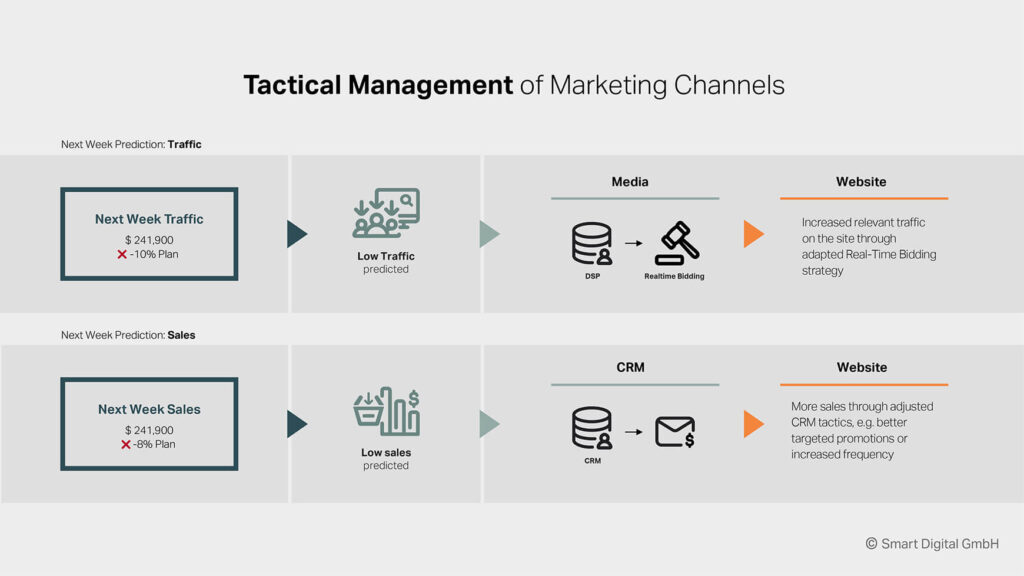Marketing is nowadays more straightforward than ever before. Marketing tools and platform solutions provide real-time insight into the status quo of plans, budgets, and campaigns. Consumers’ information – prospects and clients alike – enables hyper-personalized communication through all onsite- and offsite-touchpoints. Additionally, by applying data analytics and machine learning, generating the content, and displaying it can be continuously optimized in a fraction of a second. Further, faster programming and higher computing power allow the processing of more massive amounts of data for knowledgeable marketing automation and business decisions.
And yet, data-based marketing has so far been stuck in a reactive mode. Crucial questions about the business’s precise development in the next days or the following week remain unanswered. Why is this so?
Because data-based marketing is still predominantly descriptive, it describes the current status on which marketers must base decisions for future actions and activities. It leaves aside answers to crucial questions like:
- What will customer sentiment look like tomorrow, and what will possibly influence it?
- How will my business develop in the coming week? What can be expected in the short-term regarding traffic, leads, conversions, and sales? etc
In short: Current marketing dashboards describe the current marketing and market reality. Even though existing marketing dashboards represent the current marketing and market reality, they do not support foresighted management and marketing control, based on reliable forecasts of relevant KPIs.
The Corona crisis and the powerlessness with which marketing managers faced the restraint and consequences of lockdowns and shutdowns for companies have revealed how critical this is. The current situation has shown in which direction dashboards have to develop if they are to enable anticipatory and agile marketing in the face of abrupt market changes (read more).
It doesn’t always have to be pandemic-related market disruptions, but KPI Prediction Dashboards will be crucial for companies’ future competitiveness.
With KPIs that can be reliably predicted using deep learning algorithms, short-term market disruptions can be detected early, and CMOs can make appropriate and effective tactical adjustments to marketing actions. In the future, companies’ marketing ROI will depend on their ability to predict key performance indicators on a daily or weekly basis and thus identify business opportunities; this is particularly true for companies operating in international markets with varying conditions in each market. The goal must be not to be overwhelmed by the status quo – but to manage it actively and successfully.
Tactical control of all marketing channels and programs and the operating model’s optimization require the consistent integration of the entire marketing organization and processes. Only when all areas combine efforts to climb up the evolutionary ladder, which will fuse technology, data, and artificial intelligence, can marketing leave its previously descriptive mode and make additional value contributions.
Photo: Hunter Harritt| Unsplash




